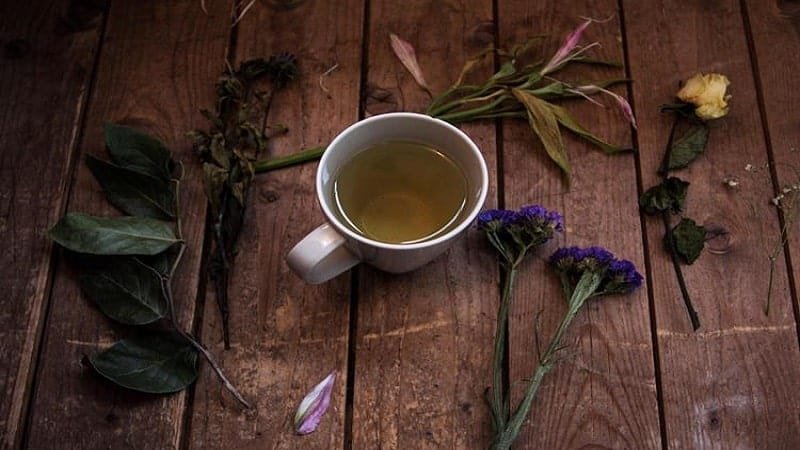If you’ve ever felt overwhelmed by the chaos of daily life, a Vipassana meditation retreat might just be the reset you need. These immersive experiences offer a unique opportunity to step away from distractions and dive deep into self-discovery. I remember my first retreat—it was both challenging and transformative, pushing me to confront my thoughts and emotions in ways I never expected.
During a Vipassana retreat, silence reigns as you embark on a journey of mindfulness and inner peace. You’ll learn techniques that help cultivate awareness and clarity, all while surrounded by nature and like-minded individuals. Whether you’re a seasoned meditator or a curious beginner, you’ll find that the experience can be life-changing. Let’s explore what you can expect on this enlightening path.
What Are Vipassana Meditation Retreats?
Vipassana meditation retreats offer immersive experiences focused on mindfulness and self-awareness. Participants engage in a structured schedule that fosters deep introspection, typically lasting from a few days to several weeks.
Overview of Vipassana Meditation
Vipassana, meaning “clear seeing,” emphasizes observation of thoughts, emotions, and sensations. Practicing Vipassana helps cultivate awareness and insight, enabling individuals to understand the nature of their minds. Daily schedules in retreats usually include multiple meditation sessions, alternating between seated and walking practices. Participants often experience a shift in perspective, leading to greater emotional resilience and mental clarity.
History and Origins
Vipassana meditation has roots in ancient Buddhist teachings. It dates back over 2,500 years to the time of the Buddha. The tradition emphasizes personal experience and direct observation of life as it unfolds. Modern Vipassana retreats, popularized by S.N. Goenka in the late 20th century, focus on teaching this technique to a wider audience, preserving its authentic methods while adapting to contemporary lifestyles.
Preparing for Your Retreat
Preparing for your Vipassana meditation retreat involves careful consideration and planning. This preparation helps you maximize the benefits of the experience.
Choosing the Right Retreat
Choosing the right retreat is crucial. Look for a retreat that resonates with your goals and offers a serene environment. Consider the duration, from 10 days to longer options, depending on your comfort level. Research the retreat center’s reputation by reading reviews or reaching out to former participants. Selecting a center led by experienced teachers ensures quality guidance throughout your journey.
What to Pack
Packing for your retreat requires thoughtfulness. Focus on essentials to support your meditation practice and comfort. Here’s a list of items to consider:
- Clothing: Bring loose-fitting, comfortable clothes suitable for sitting and movement. Layers are key for varying temperatures.
- Meditation Gear: Include a meditation cushion or blanket if you prefer your own. A yoga mat can also enhance your practice.
- Personal Items: Pack toiletries and a reusable water bottle. Keeping hygiene simple contributes to a peaceful environment.
- Journal: Use a journal for reflections and insights gained during the retreat. Writing can deepen your understanding of your experiences.
- Snacks: If allowed, bring healthy snacks to maintain energy levels between meals. Focus on items like nuts or dried fruit for quick nourishment.
Proper preparation ensures a smooth transition into meditation, allowing you to fully immerse yourself in this transformative experience.
Daily Schedule at a Retreat
Every Vipassana meditation retreat follows a structured daily schedule that supports deep meditation and personal reflection. Participants can expect a mix of meditation sessions, mindful meals, and silent periods designed to enhance focus and clarity.
Meditation Practices
Morning meditation typically begins around 4:00 AM, fostering an early start to the day. Each session lasts about an hour, focusing on breath awareness and observation of thoughts and sensations. Morning practices help reinforce the principles of Vipassana, instilling a sense of calm before the day unfolds. Throughout the day, additional group meditation sessions occur, offering further opportunities to deepen the practice. I often encourage participants to embrace these moments, as prolonged periods of stillness can lead to transformative insights.
Group Activities and Discussions
In the afternoons, group activities provide a chance to connect with fellow participants in a mindful way. These sessions often include guided discussions, where I facilitate sharing experiences and insights. Community support enriches the retreat experience, strengthening bonds through shared vulnerabilities. Additionally, there may be evening talks or Q&A sessions with teachers that clarify deeper Vipassana concepts. Engaging in these interactions fosters understanding and reinforces the retreat’s teachings while maintaining the overall atmosphere of silence and introspection.
This structured schedule cultivates an environment conducive to self-discovery and transformation, allowing participants to fully immerse themselves in the journey of Vipassana meditation.
Benefits of Participating in Vipassana Retreats
Participating in Vipassana retreats offers numerous benefits that enhance mental well-being and support personal growth.
Mental Health Improvements
Vipassana meditation fundamentally alters the way I perceive stress and anxiety. Through the practice, participants can cultivate mindfulness, leading to improved emotional regulation. Regular attendees often notice reductions in symptoms of depression, anxiety, and overwhelming thoughts. The silence allows for reflection, helping to break negative thought patterns and promote a sense of peace. Many individuals report feeling more grounded after a retreat, equipped with tools to navigate life’s challenges with clarity and resilience.
Personal Growth and Insights
Personal growth reaches new heights during Vipassana retreats. The deep introspection encourages participants to confront and understand their habits, beliefs, and emotions in a safe environment. This process leads to profound insights about oneself, fostering greater self-acceptance and compassion. Participants frequently emerge with a renewed perspective on life, equipped with strategies for personal development. Sharing experiences during group discussions enhances the sense of community, allowing for collective growth and support. Each retreat becomes a unique journey of self-discovery, providing lasting transformations that resonate well beyond the retreat itself.
Challenges You May Face
Attending a Vipassana meditation retreat presents unique challenges. Preparing mentally for these experiences helps in navigating potential difficulties effectively.
Dealing with Discomfort
Discomfort during meditation arises frequently. Various physical sensations, including stiffness or soreness, may occur while sitting for extended periods. Awareness of these sensations becomes crucial. Observing rather than reacting to discomfort fosters patience and resilience. Engaging in gentle stretches before sessions prepares the body. Listening to your body and adjusting posture can ease some tension. Gradually, discomfort transforms into a deeper awareness of self.
Overcoming Restlessness
Restlessness often emerges, especially in silence. The mind may wander or clamor for distraction. Recognizing this restlessness is vital. Instead of resisting, embrace it. Acknowledge wandering thoughts and gently guide focus back to the breath. Incorporating mindful breathing helps ground the mind. Utilizing short breaks between meditation sessions allows for reflection, gradually easing the sense of urgency. Seeking community support from fellow participants reinforces shared experiences, providing comfort during moments of restlessness.
Conclusion
Attending a Vipassana meditation retreat can truly be a life-changing experience. It’s a chance to step away from the noise of everyday life and dive deep into self-reflection. I found that the challenges I faced during my retreat only added to the growth I experienced.
The insights gained and the sense of community formed with fellow participants made every moment worthwhile. If you’re considering this journey I encourage you to embrace the silence and allow yourself to fully engage in the process. The rewards of mindfulness and clarity are well worth the effort.
















